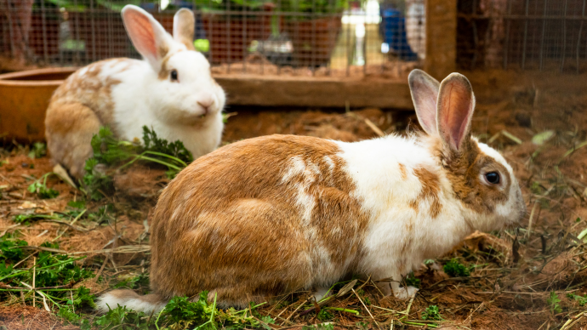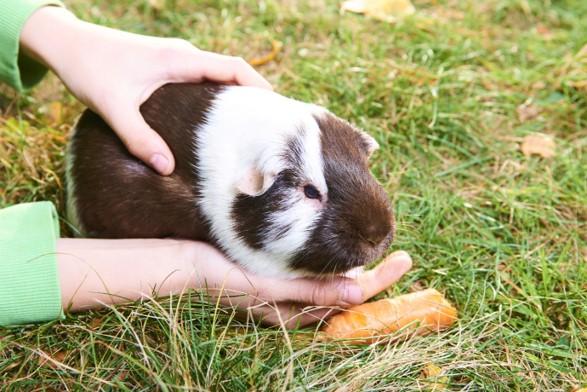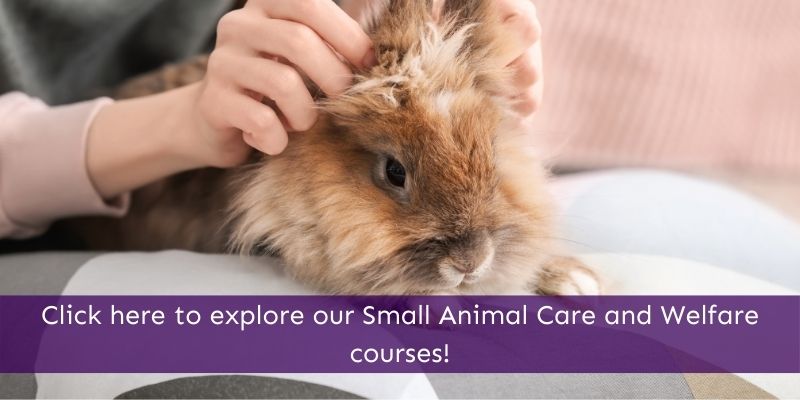For those of us who love small animals, it’s more than just taking care of them that motivates us.
We love watching animal behaviour, they can be as stubborn as humans, or as silly as children. Even the smallest of pets have unique personalities and can bring us so much joy.
If you are passionate about the small animals in your care then you may be wondering what you need to know to look after them properly.
Which pets are the easiest to take care of?
Many people opt for smaller pets such as Rabbits, Hamsters, Guinea Pigs, Reptiles and Birds because they are perceived to be relativity easy to look after. However, every species of animal has a different set of requirements, and to become a responsible pet owner, you must know the basics of how to care for them. All animals require a reasonable amount of love, care, and attention, and they rely on us humans to cater to their basic needs.
Do Rabbits make good pets?
Considering Rabbits are the 3rd most popular pet animal in the UK, Rabbit Welfare and Care is a popular topic to research. Not everyone is fully equipped with Rabbit knowledge and in fact, we are still learning about how we can improve their habitats, diets, and their health every day.
Families with small children and other animals such as cats and dogs often choose Rabbits as stress-free and low maintenance pets. They are very docile animals, enjoy human interaction and tend not to bite or scratch when being handled correctly.
Rabbits are great pets for the home, and if you are luckily enough to have a garden, they should have an outdoor hutch that is protected from the wind and rain and is well ventilated. Rabbits also need space to run around therefore it is essential to provide a run or an extension for the hutch so that the rabbit can get fresh air, exercise and access to fresh green grass and dandelions.
According to UK Animal Welfare Regulations – a Rabbit run should be at least 3m long and 1m meter high.

Owners must also be aware of other predators. Rabbits unfortunately are targets for foxes and birds of prey; so it is extremely dangerous to leave rabbits to roam around without supervision. To keep your Rabbits away from harm, make sure they are never left unattended and always safely lock them away in their hutch at night with all doors and windows locked.
Contrary to popular belief, Rabbits are very sociable animals and love companionship. They must live with other rabbits to live a fulfilling life. The best paring for Rabbits is with a neutered male and a neutered female. Pairs of rabbits often have an emotional bond and will follow one another and play together.
Playtime is also an especially important aspect of Rabbit welfare. Just like most animals, they need more than just a place to eat and sleep. They also require enrichment, so it’s a great idea to include pet-safe toys with digging spots, tunnels, and safe hiding spaces.
If you are adopting or rescuing a pair or group of Rabbits (Otherwise known as a fuffle!) then it’s good to get them registered at your local vets right away. Not all vets are trained in Vet care, therefore it might be best to call around your local area to make sure they have this expertise.
It’s common knowledge that rabbits have exceptional reproductive systems, therefore, to make sure you are not inundated with babies, it’s best to get ALL female and male rabbits neutered right away. Veterinary practices should also offer you the option of microchipping and vaccinations. Doing this early, will provide you with a piece of mind and help you fund any additional health-related illnesses and injuries in the future.
Caring For Your Rabbit is a course specifically designed for younger learners. Anyone over the age of 8 years old can study this course online. This course will help you understand how to handle rabbits comfortably and how to take care of your rabbits.
The Rabbit Welfare Course is a Certificate online course for those who want to learn more about Rabbit enrichment and health and disease.
Do Guinea Pigs make good pets?
Guinea pigs are another small species of rodents that are excellent pets. They are known to be quite a sociable bunch and you can hear them ‘chatter’ and ‘squeak’ on a regular basis.
Similar to Rabbits, Guinea pigs are also great with small families and other animals, however, they must be supervised by an adult if they are being handled by children.

According to the advice from the RSPCA, Rabbits and Guinea pigs should not be kept together. Rabbits are quite active and can be too boisterous for Guinea pigs, therefore they are unlikely to be natural friends.
The best companion for a Guinea pig is another Guinea pig! Like Rabbits, they are sociable creatures and feel safer and happier in groups.
Guinea pigs also have a quite different diet from Rabbits. They cannot synthesize vitamin C and therefore require specialised guinea pig pet food.
Studying a short course is a great way to learn more about Guinea Pig welfare. Our Guinea Pig Studies Certificate contains all of the basic tools and tips on raising these small animals, including how to look after their general health and provide optimal nutrition.
Do hamsters make great pets?
Whilst Hamsters are probably considered one of the lowest maintenance pets, they still rely on good quality care from their caregiver. Hamsters are very entertaining and can make great a great pet for someone who wants the company of a small animal and has the time to give it the attention it deserves.
.png)
Unlike Rabbits and Guinea Pigs, the hamster prefers living alone. They are nocturnal creatures and are sensitive to light, which means they might be more active at night and not that sociable. So you will need to be patient and be mindful that your Hamster may not want to come out and play during the daytime.
Whilst Hamsters seem like a great choice for families with small children, they are a better fit for those who can handle them delicately. They are rodents and have less tolerance for being handled so it may not be the safest option for small children.
Providing that Hamsters mostly left alone, have a cage or house that has enough space for them to run around, burrow, create a nest out of bedding and nesting materials, have access to regular fresh water and food can lead them to have healthy and happy lives.
Hamsters are not in the same family as rabbits, they are part of the subfamily Cricetinae. This means that they have different behaviour, health, dietary and mental needs.
If you want to learn more about how to provide the best care for your companion hamster, then studying a course on their welfare may help you get there.
The Hamster Care and Welfare Course is a short course that looks at the behaviour, environment, enrichment and health needs of Hamsters.
For more information on small animal welfare and pet care please visit our website.
Also, if you adore animals, you can keep track of all upcoming animal awareness days and events with our FREE calendar! Download it here.

















